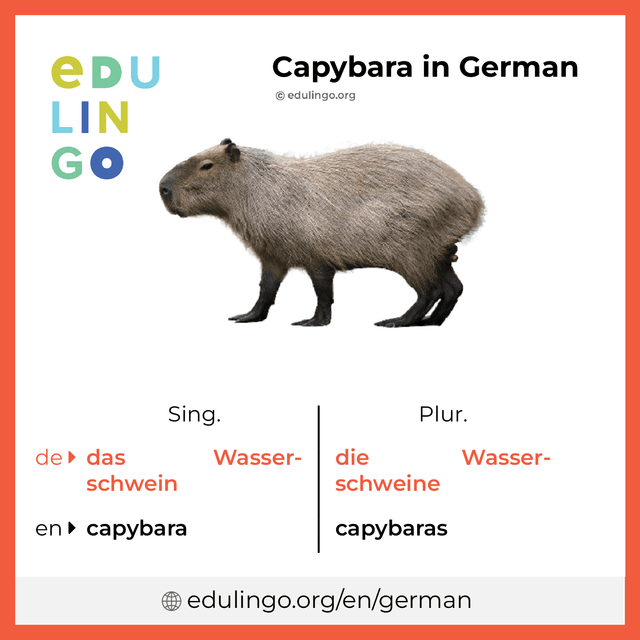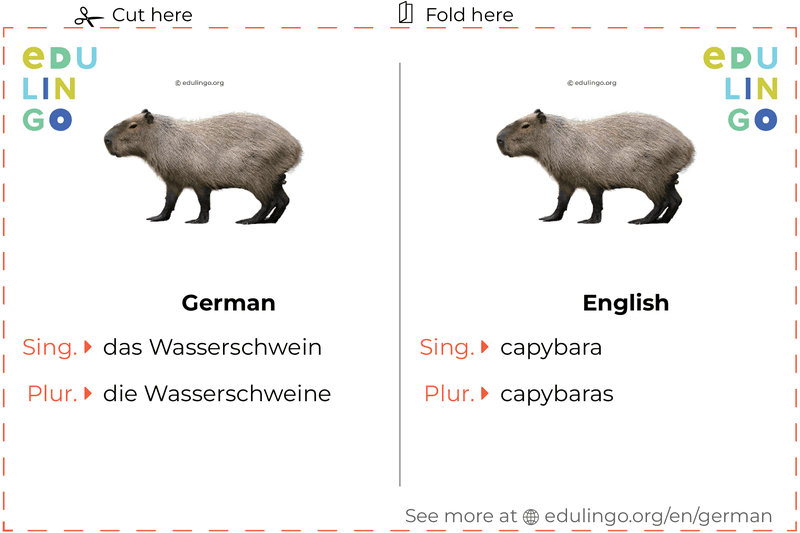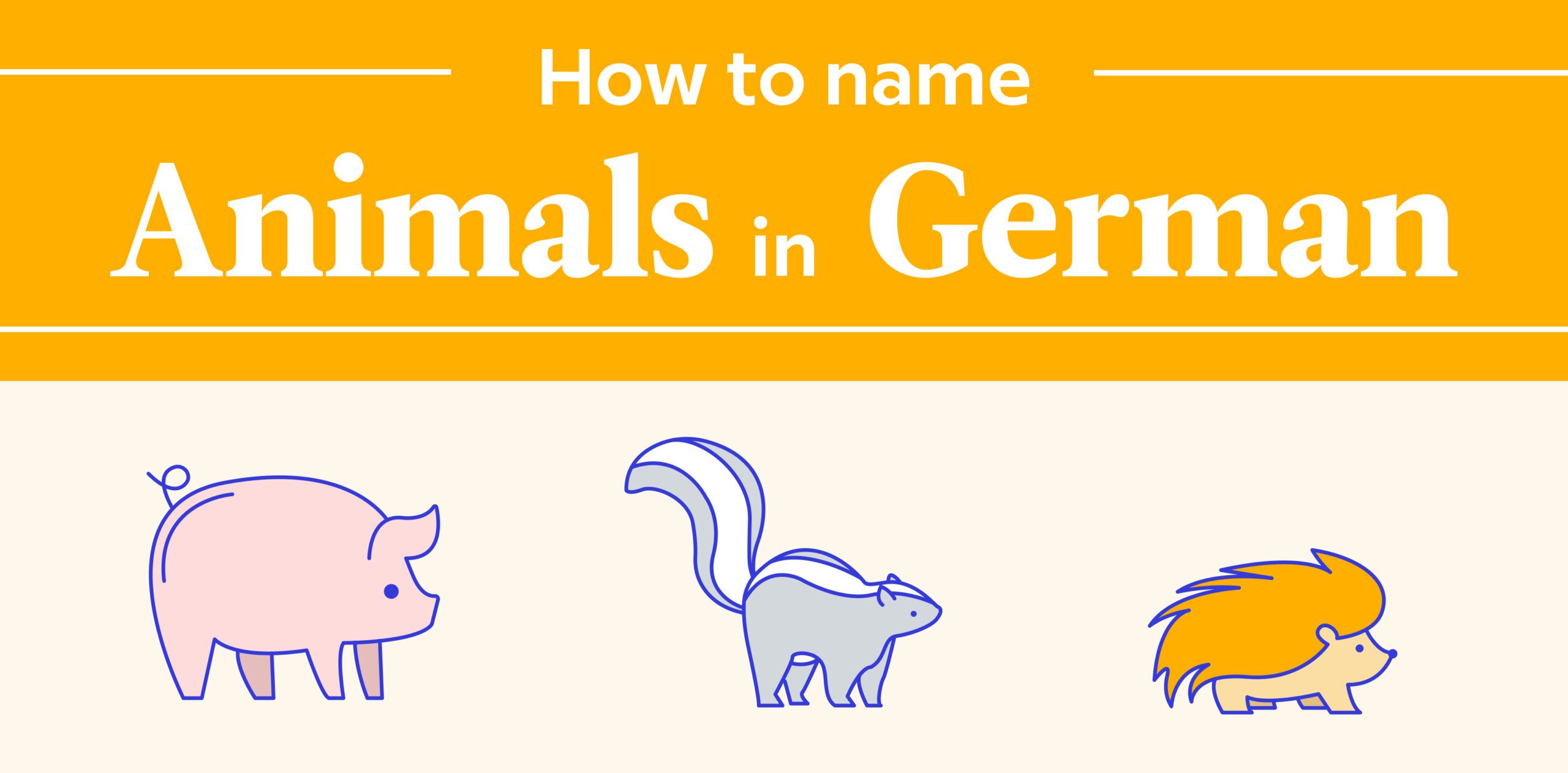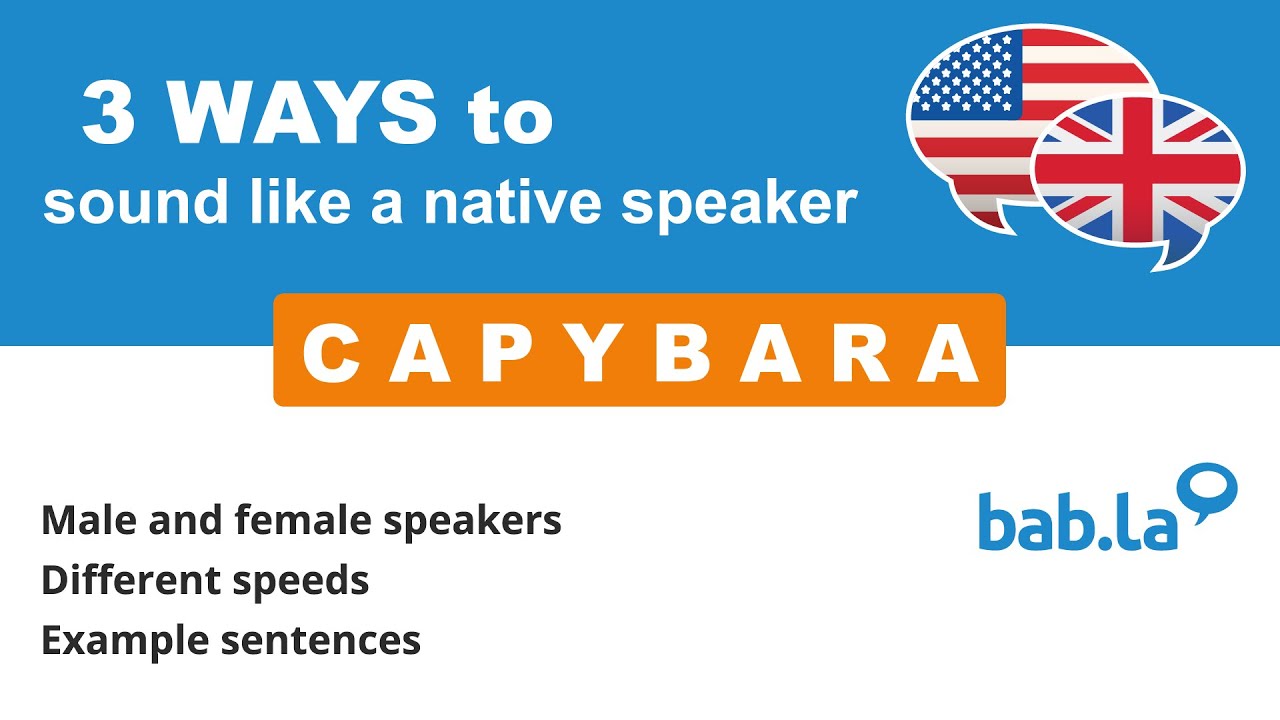So, you’re curious about how to say “capybara” in German? Well, you’ve come to the right place! In this article, we will explore the linguistic wonders of the German language and uncover the perfect translation for this adorable South American mammal. Whether you’re a language enthusiast or simply have a fascination for these unique creatures, prepare to be captivated as we uncover the German equivalent of “capybara” and discover a whole new way to appreciate these fascinating animals. Are you ready to embark on this linguistic adventure? Let’s get started!

Nouns and Gender in German
Overview of German Nouns
German nouns, like in many other languages, have gender classifications. In German, there are three genders: masculine, feminine, and neuter. This means that every noun is assigned one of these genders, regardless of the actual gender of the object it refers to. It is important to correctly identify the gender of a noun in order to use it correctly in sentences and to match it with the appropriate articles, pronouns, and adjectives.
Gender in German Nouns
Determining the gender of a noun in German can be quite challenging as there are no specific rules that universally dictate the gender of a noun. However, there are some patterns and tendencies that can be helpful in determining the gender of a noun. One common pattern is that many nouns ending in -ung (for example, die Bedeutung meaning “the meaning”) are feminine. Additionally, nouns ending in -chen or -lein are usually neuter. However, it’s important to note that these are just tendencies and there are exceptions to these patterns. The best way to learn the gender of a noun is to memorize it along with its article.
Translation of Capybara
Different Translation Options
When it comes to translating the word “capybara” into German, you have a few options depending on the context and your personal preference. One common translation is “Wasserschwein,” which directly translates to “water pig.” Another possible translation is “Kapibara,” which is the same as the word in English but adapted to the German spelling and pronunciation. Lastly, some people might simply use the English word “capybara” while speaking German, especially in informal contexts where borrowing words from other languages is common.
Choosing the Correct Translation
To choose the correct translation for “capybara,” it’s important to consider the context in which the word is being used. If you’re having a conversation with native German speakers or writing a formal document, it’s generally best to use the German translation options mentioned earlier. Using the German translations can help you sound more fluent and knowledgeable in the language. However, if you’re in a casual, relaxed setting with friends or fellow language learners, using the English word “capybara” might be perfectly acceptable.

Pronunciation of Capybara
German Alphabet and Sounds
Before we discuss how to pronounce “capybara” in German, let’s review the German alphabet and some important sounds. The German alphabet consists of the 26 letters found in the English alphabet, as well as four additional letters: ä, ö, ü, and ß. The umlauts (ä, ö, ü) change the sound of the vowel and are pronounced differently than their non-umlaut counterparts. The letter ß, known as “ess-tset,” is only used in German and represents a double “s” sound.
Correct Pronunciation of Capybara
To pronounce “capybara” in German, you can use the following pronunciation guide: “KAH-pee-BAH-rah.” Remember to use the German pronunciation rules for each letter. The “KAH” sound should be pronounced like the “c” in “car,” and the “PEE” sound is similar to the letter “P” in English. Lastly, the “BAH-rah” sound is pronounced with a rolling “R” sound at the end.
German Vocabulary and Phrases
Relevant German Vocabulary
To expand your German vocabulary, it’s helpful to learn words and phrases related to capybaras and their characteristics. Some relevant German vocabulary words include: “das Nagetier” (rodent), “das größte Nagetier” (the largest rodent), “das Wasser” (water), and “der Regenwald” (rainforest). By incorporating these words into your language learning routine, you’ll improve your overall understanding of the German language and be able to express yourself more effectively.
Useful Phrases with Capybara
Here are some useful German phrases that incorporate the word “capybara”:
- “Capybaras sind die größten Nagetiere der Welt.” (Capybaras are the largest rodents in the world.)
- “Ich habe gehört, dass Capybaras sehr gesellige Tiere sind.” (I have heard that capybaras are very sociable animals.)
- “Die Capybaras leben hauptsächlich in Südamerika.” (Capybaras mainly live in South America.)
Incorporating these phrases into your conversations or writing will not only help you practice your German skills, but also impress others with your knowledge of capybaras.

Tips for Learning German
Immerse Yourself in German Culture
To enhance your German learning experience, immerse yourself in German culture as much as possible. Surround yourself with German media such as movies, music, and television shows. Listen to German podcasts, read German books, and try cooking traditional German dishes. By engaging with the culture, you’ll not only improve your language skills, but also gain a deeper understanding and appreciation of the German way of life.
Practice Speaking and Listening
One of the most effective ways to improve your German speaking and listening skills is by actively practicing. Find language exchange partners, join conversation groups, or take part in language lessons where you can practice speaking with native speakers. Additionally, make a habit of listening to German audio, such as podcasts or audiobooks, to improve your listening comprehension. The more you practice, the more comfortable and confident you’ll become in using the German language.
Use Language Learning Apps
Technology has made language learning more accessible and convenient than ever before. Utilize language learning apps, such as Duolingo, Babbel, or Memrise, to supplement your German studies. These apps provide interactive exercises, vocabulary lessons, and even opportunities to connect with other learners. Incorporating these apps into your daily routine can help you stay engaged and motivated while making progress in your German language journey.
Online Resources for Learning German
German Language Learning Websites
There are several reputable websites available for learning German online. Some popular options include:
- “Deutsche Welle” (www.dw.com): This website offers a wide range of resources for German learners, including online courses, audio and video materials, news articles, and interactive exercises.
- “Goethe-Institut” (www.goethe.de): The Goethe-Institut provides online courses and resources for learners of all levels. They also offer internationally recognized German language proficiency exams.
These resources can supplement your language learning journey by providing additional practice, grammar explanations, and cultural insights.
Online German Courses
If you prefer a more structured approach to learning German, online German courses are a great option. Websites such as “Rosetta Stone,” “FluentU,” and “GermanPod101” offer comprehensive courses designed to cater to different learning styles and levels of proficiency. These courses often include interactive exercises, video lessons, and direct feedback from instructors, allowing you to learn at your own pace and receive personalized guidance.

German Language Schools and Courses
Choosing a Language School
If you prefer a more immersive and intensive learning experience, attending a German language school can be highly beneficial. When choosing a language school, consider factors such as accreditation, reputation, curriculum, teaching methods, and class sizes. Look for schools that offer a diverse range of courses suitable for your needs, whether you’re a beginner or an advanced learner. Additionally, read reviews and seek recommendations from other students to ensure you choose a reputable institution.
Types of German Courses
Language schools offer various types of German courses depending on your goals and availability. Some common course options include:
- Intensive courses: These courses provide full-time instruction and typically last for a few weeks or months. They are ideal for learners who want to make rapid progress in a short amount of time.
- Group courses: Group courses are a popular option as they allow you to learn alongside other students at a similar language level. This setting encourages interaction and provides opportunities for group activities and discussions.
- Private lessons: If you prefer one-on-one instruction, private lessons with a qualified teacher can be tailored to your specific needs and learning pace. This option offers personalized attention and immediate feedback.
Consider your learning style, schedule, and preferences when choosing the type of German course that aligns with your goals.
German Language Exams
Common German Language Exams
For those wishing to assess their German language skills or pursue further education or employment opportunities, taking a German language exam may be necessary. Some of the common German language exams include:
- TestDaF: TestDaF is an exam that measures your proficiency in the German language and is often required for admission to German universities.
- Goethe-Zertifikat: The Goethe-Zertifikat is a series of exams offered by the Goethe-Institut and is internationally recognized as proof of German language proficiency.
- Telc: Telc exams assess your German language skills in various contexts, such as for work or general everyday communication.
These exams provide a standardized way to evaluate your language abilities and can be an important credential when applying for jobs, scholarships, or further education.
Tips for Exam Preparation
Preparing for a German language exam requires dedication and practice. Here are some tips to help you prepare effectively:
- Familiarize yourself with the exam format, including the different sections and time limits.
- Practice regularly using sample exam papers to become comfortable with the types of questions and tasks you may encounter.
- Focus on areas where you feel less confident and use targeted study materials to strengthen those skills.
- Seek feedback from a teacher or tutor to identify areas for improvement and receive guidance on specific exam techniques.
- Manage your time effectively during the exam by practicing time management strategies before the actual test.
Remember, consistent and focused practice, coupled with effective time management and familiarity with the exam format, will increase your chances of success.

German-Language Communities and Events
Joining German-Language Communities
Joining German-language communities, whether online or in person, is an excellent way to practice your language skills and connect with like-minded individuals. Look for local language exchange groups, German conversation meetups, or online forums where you can interact with native German speakers and fellow language learners. Engaging in conversations, participating in language exchanges, and asking for feedback will help you improve your speaking and comprehension skills.
Attending German Cultural Events
Attending German cultural events can provide immersive experiences and further strengthen your connection to the language. Look out for German festivals, cultural exhibitions, film screenings, or even local German restaurants where you can engage with the language, cultural traditions, and cuisine. These events will not only enhance your language skills but also deepen your understanding of German culture and foster a sense of community.
Conclusion
Review of Key Points
In conclusion, this comprehensive article covered various aspects of learning German, focusing on nouns and gender, translation of “capybara,” pronunciation, vocabulary and phrases, tips for learning, online resources, language schools, language exams, German-language communities, and cultural events. Understanding the gender of German nouns is crucial for proper usage and agreement in sentences. When it comes to translating “capybara,” context and personal preference play a role in choosing the correct translation. Pronunciation in German requires knowledge of the German alphabet and specific sounds. To expand your vocabulary, learning relevant words and phrases related to capybaras is helpful. Tips for learning German include immersing yourself in German culture, practicing speaking and listening, and utilizing language learning apps. Online resources, such as language learning websites and online German courses, provide additional support. Attending a German language school offers a more immersive and structured learning experience. German language exams can assess proficiency and open doors to further opportunities. Joining German-language communities and attending cultural events provide opportunities for practice, connection, and cultural enrichment.
Encouragement to Continue Learning German
Learning a new language can be challenging at times, but the rewards are immeasurable. Don’t be discouraged by occasional setbacks or difficulties; instead, embrace them as opportunities for growth. Remember to practice regularly, explore different resources, and most importantly, have fun along the way. The journey of learning German is not only about mastering a new language, but also about exploring a rich culture, connecting with others, and opening doors to new experiences. So, keep up the great work and continue your German language journey with enthusiasm and determination!



